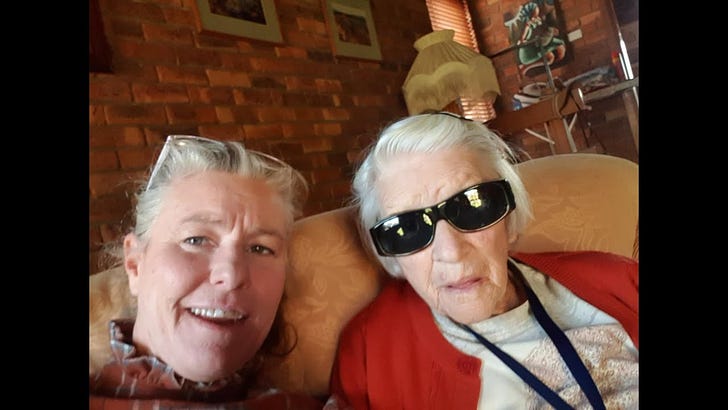A recent reply to some publicly available figures we posted online:
“I do understand how logical arguments work but unfortunately I seem unable to have one with you. I now realise that I am wasting my time trying to make you see sense. I would predict that if you and your friends continue with your longwinded diatribes that any prospective CEO's will take one look at Snowy Monaro Regional Council and say Yeh, Nah! You probably have already done irreparable damage.”
I'm equally delighted and saddened by this response! On one hand, it's fascinating that by simply offering facts, figures, and well-founded opinions, we’ve apparently managed to cause "irreparable damage" to the council or perhaps a prospective new CEO. That’s a pretty amazing superpower, right? If we keep this up, maybe we’ll really manage to shake up the council chambers and make some real change happen!
On the other hand, I’m genuinely saddened that we haven’t found an approach that works to break through the strongholds of what seems to be an increasingly hallucinatory take on the facts. It’s frustrating when rationality, facts, and figures don’t seem to make a dent on trolls and their cohorts, and yet the response is often emotional and aggressive, despite their clear ignorance about the actual issues. I remain hopeful, though—maybe one day we’ll have the tools and skills to deal with willful ignorance a little more effectively. Here's hoping for better discussions ahead!
Discussions around governance, transparency, and accountability often evoke strong opinions, particularly when it comes to public officials. In recent exchanges, we’ve encountered several negative replies to our posts about local council issues. These comments range from dismissive and hostile to defensive and accusatory. In this article, we’ll explore the fascinating dynamics behind these negative responses, compare how we responded to the criticisms, and examine an interesting phenomenon: Thaler Derangement Syndrome, where negative posters blame or deflect their frustrations onto a tangential figure.
Analysis of Negative Comments
The comments analyzed reveal a narrow range of defense mechanisms— strategies people use to protect themselves from uncomfortable realities. These mechanisms are often triggered when individuals feel their beliefs, identities, or loyalty to authority are threatened.
1. Denial and Resistance to Accountability
Many of the comments demonstrated denial as a defense mechanism. This occurred when commenters refused to engage with facts or arguments about financial mismanagement or governance failures, instead dismissing them as irrelevant or unfounded.
Example: A commenter disregarded concerns about the CEO's resignation, claiming, "He just didn’t want to deal with the new council; it’s no big deal."
Insight: This type of denial allows individuals to avoid confronting the uncomfortable reality that transparency issues exist, protecting their worldview and emotional investment in the current administration.
2. Projection: Accusations of an Agenda
In several instances, commenters projected their own feelings onto others, accusing them of having an "agenda" or "ulterior motives."
Example: "You’re full of <beep>,..” and “[you’re] just trying to cause trouble."
Insight: Projection occurs when individuals attribute their own feelings—such as frustration or fear of change—onto others. In this case, the commenter accuses the person asking for transparency of having a hidden agenda, perhaps reflecting their own discomfort with the scrutiny being placed on council actions.
3. Rationalization and Minimization of Issues
Several commenters tried to rationalize the situation, suggesting that concerns about governance and financial management were being blown out of proportion.
Example: "You’re making a big deal out of nothing—no one cares about this."
Insight: Rationalization helps commenters justify their perspective by downplaying the significance of the concerns raised. By minimizing the issue, they protect themselves from the anxiety that comes with acknowledging potential governance failures.
4. Personal Attacks and Displacement
In some replies, personal attacks were directed at those calling for transparency, rather than engaging with the actual issues.
Example: "You’re a complete idiot for even thinking this matters."
Insight: This type of displacement reflects a redirection of anger or frustration. Instead of addressing the substantive concerns, the commenter attacks the person, which helps them avoid confronting the uncomfortable truth that governance problems may exist.
Our Response: A Constructive and Rational Approach
In contrast to the negative replies, our responses focused on logic, facts, and constructive dialogue. Here’s how our approach compares:
1. Calm and Fact-Based Engagement
While many negative replies were emotionally charged, we tried our best to remain calm and kept the discussion focused on factual evidence. We consistently cited Steve Whan’s comments regarding the CEO’s resignation and used concrete financial data to back up our concerns.
Example: When commenters dismissed concerns about transparency, we responded with, “Steve Whan himself mentioned legal threats surrounding the CEO’s resignation on ABC Radio, which makes these questions not only fair but necessary.”
Comparative Insight: By staying focused on facts and avoiding emotional escalation, we steered the conversation back to the core issues of governance and accountability, countering defensiveness with transparency.
2. Engagement with Constructive Criticism
When constructive criticism was provided (such as requests for more data on debt recovery costs), we acknowledged it and offered to seek further information.
Example: "It would be good to have access to additional information, such as the number of debt cases and the amount of money obtained by the debt recovery process."
Comparative Insight: Our approach demonstrated openness to further dialogue, encouraging transparency while acknowledging the need for more comprehensive data.
3. Use of Humor and Civility
While some negative comments relied on sarcasm and insults, we occasionally used light humor to diffuse hostility without escalating the situation. This kept the conversation civil and productive.
Example: In response to a particularly hostile comment, we replied with, “Maybe you should try contacting a therapist for Thaler Derangement Syndrome," using humor to gently challenge the personal attack while refocusing the conversation.
Thaler Derangement Syndrome: The Blame Game
An interesting phenomenon that appeared frequently in the negative replies was the tendency to blame or deflect criticism onto Andrew Thaler, a figure only tangentially related to the issues at hand. We refer to this as "Thaler Derangement Syndrome" (TDS)—a tendency where commenters default to blaming Thaler for all the council's woes, regardless of the actual topic.
What is Thaler Derangement Syndrome?
TDS reflects a deeper psychological mechanism: scapegoating. By focusing their frustration on one individual, commenters avoid addressing the broader systemic issues at play, such as financial mismanagement or lack of transparency within the council.
Example: In a discussion about the CEO’s resignation, one commenter wrote, "This is all Thaler’s fault, he’s just causing trouble for the sake of it."
Insight: Scapegoating allows commenters to redirect their anger onto a single figure, creating an easy target and avoiding deeper examination of council failures. This also ties into deflection, where commenters deflect attention from the core issues by focusing on an individual instead of the larger governance problems.
Our Response to TDS
We handled this blame-shifting by refocusing the discussion on the actual issues, such as transparency and public accountability, reminding readers that focusing on one individual distracts from the more pressing concerns that affect the community at large.
Example: "While you may have your opinions about Thaler, this isn’t about one person—it’s about ensuring transparency and accountability in our local governance."
Conclusion: A Balanced Approach vs. Emotional Deflection
It’s clear that much of the negativity from our opposition stem from psychological defense mechanisms like denial, projection, and displacement. These mechanisms protect individuals from confronting uncomfortable realities about governance and transparency.
In contrast, our responses remained focused on factual engagement, constructive dialogue, and a commitment to transparency. We employed humor sparingly and strategically, while consistently redirecting conversations toward the core issues. By doing so, we managed to de-escalate hostility and maintain a productive focus on accountability.
As the conversations around local governance continue, it’s important to remain aware of these dynamics and continue to engage with logic, civility, and transparency, while being mindful of deflection tactics like Thaler Derangement Syndrome.
If you’ve noticed similar trends in public discourse or have thoughts on how to better engage with emotional deflection and projection, feel free to share your insights in the comments! Together, we can foster a more constructive dialogue on governance and accountability.














Share this post